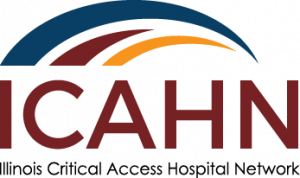04/29/2020
State of Illinois to borrow $1.2 billion to cover expenses from economic downturn
As of 4.29.20
Submitted by IHA and the State Journal Register
Illinois plans to borrow $1.2 billion next week to help the state cover expenses during the economic downturn and delays in filing state income taxes. Another $1 billion in bonds will be issued to pay for construction projects and voluntary buyouts of state pensions.
Gov. JB Pritzker announced in mid-April that he, Comptroller Susana Mendoza and Treasurer Mike Frerichs had agreed to borrow up to $1.2 billion when he released revenue projections for the remainder of the year.
Because of the effects the pandemic has had on the economy, Illinois tax collections are expected to drop by $2.1 billion through the end of the fiscal year June 30. About $1 billion of that decrease is the result of the income tax filing deadline being moved from April 15 to July 15.
By law, the short term borrowing must be repaid within a year. However, Pritzker’s budget office said projected revenues for the next fiscal year are expected to fall by $4.6 billion from previous projections.
Mendoza spokesman Abdon Pallasch said the state should be able to repay the debt on time. “We are well aware of all of the numbers and challenges and we think it is doable,” he said.
He pointed out that the state has already maxed out on the $1.2 billion in inter-fund borrowing that was authorized in the current budget. Lawmakers had approved tapping into restricted state funds that have money beyond what is necessary to operate. Much of those funds were used to purchase personal protective equipment and pay other costs associated with combating the coronavirus.
The $1 billion in bonds are being issued for public works construction projects over the summer and to continue maintenance projects at state facilities, the governor’s budget office said. Some of the money also will be used to pay for pension buyouts. Lawmakers previously approved a plan that allows people to drop out of a state pension system in exchange for a lump sum payment that they can then invest as they choose.
Also Tuesday, second semester Monetary Award Program money that helps low income college students was distributed to colleges around the state. The about $207 million in distributions had been on hold because of cash flow problems caused by the COVID-19 pandemic.
“It’s day-to-day cash management,” Pallasch said. “Enough money came in that we were able to get the MAP grants out. You try to budget conservatively and assume the worst and then what you absolutely need to pay. If more than that comes in, well good. Then you can go ahead and pay the MAP grants.”

